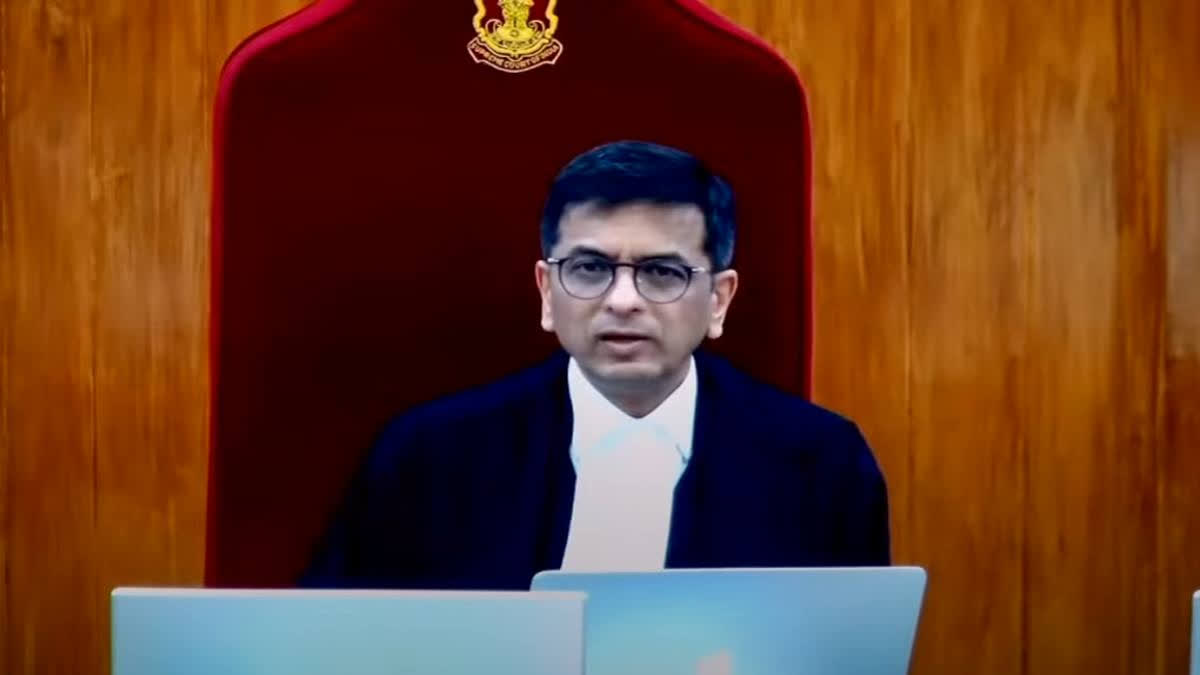New Delhi: The Chief Justice of India D Y Chandrachud, praising eminent jurist Fali S Nariman, said the ultimate test of a moral person is their willingness to raise a voice for justice even when it means rocking the boat (in this case, as he would say, the aircraft), and Nariman was always willing to speak for what was right and just. Nariman passed away on February 21 this year.
Nariman, a doyen of Indian judiciary, was part of several landmark legal proceedings which helped shape modern India, including the Kesavanand Bharati case in which the Supreme Court laid down the basic structure doctrine.
The CJI, speaking at a full-court reference held at the Supreme Court in honour of Nariman, said: “I am also reliably informed that right until the night before his passing, he was meticulously settling the draft of a written submission for an upcoming Constitution Bench hearing on arbitration law”.
“His mental agility, dedication to his work, and commitment to the law remained uncompromised till the day he finally rested”, said Justice Chandrachud.
The CJI said with the imposition of the Internal Emergency in June 1975, Nariman resigned as additional solicitor general. “In his later years Mr Nariman often described how, in the days following his resignation as Additional Solicitor General, visitors to his house dried up to a trickle”, he said.
“However, his continued accomplishments at the Supreme Court are a testament not only to his enduring legal prowess that saw him through turbulent times, but also to that finest tradition of the Bar in rising above the disagreements of the day to unfailingly serve their clients, assist the Court, and work towards our nation’s betterment”, said the CJI.
The CJI said despite appearing for countless clients of various backgrounds, creeds, and political dispensations, Mr Nariman always recognised that his highest duty was to the court and the Constitution.
“In the legal profession, the hallmark of a great lawyer is not one who wins, but one who fights well and in doing so furthers the Judges’ own understanding of the issues. Mr Nariman was amongst the very best”, he said, adding that Mr Nariman’s contributions to the legal profession transcended the court.
The CJI said Mr Nariman’s life and career before our courts lived up to the highest ideals of the legal profession. “No matter the client, the government, or the case, Mr Nariman sought to advance a vision of the law grounded in liberty, equality, and justice, the foundational values of our Constitution and ultimately, our society. No matter the occasion or the opponent, he conducted himself with grace and poise”, he said.
Nariman, 95, was born into a well-to-do Parsi family on January 10, 1929 in Rangoon, now Yangon, in Myanmar. His family fled to India during the Japanese invasion when he was only 12. He received the Padma Bhushan in 1991 and the Padma Vibhushan, the country’s second highest civilian honour, in 2007.
Read More



